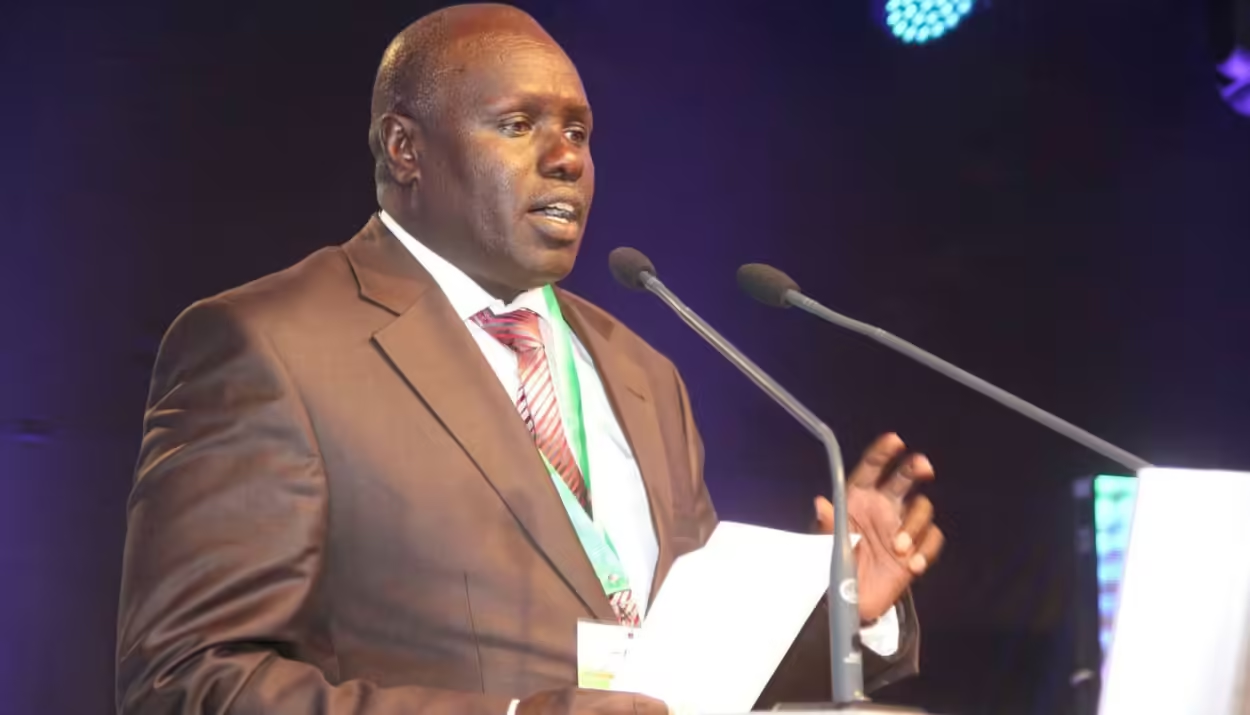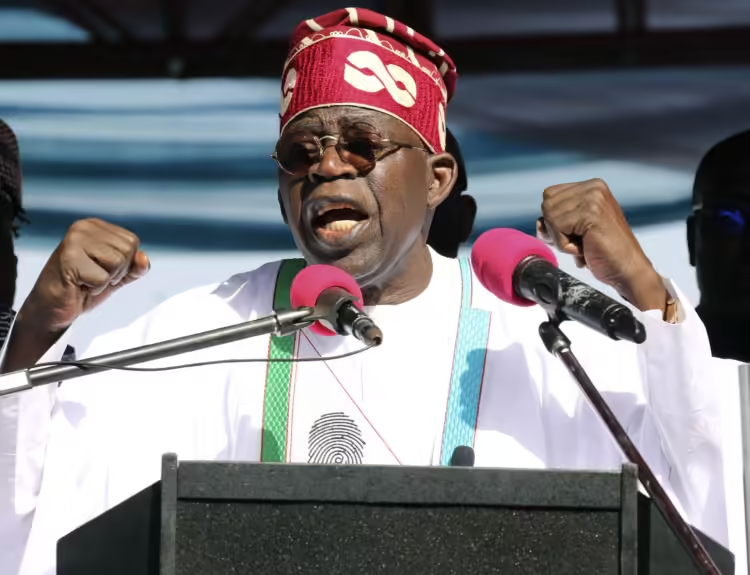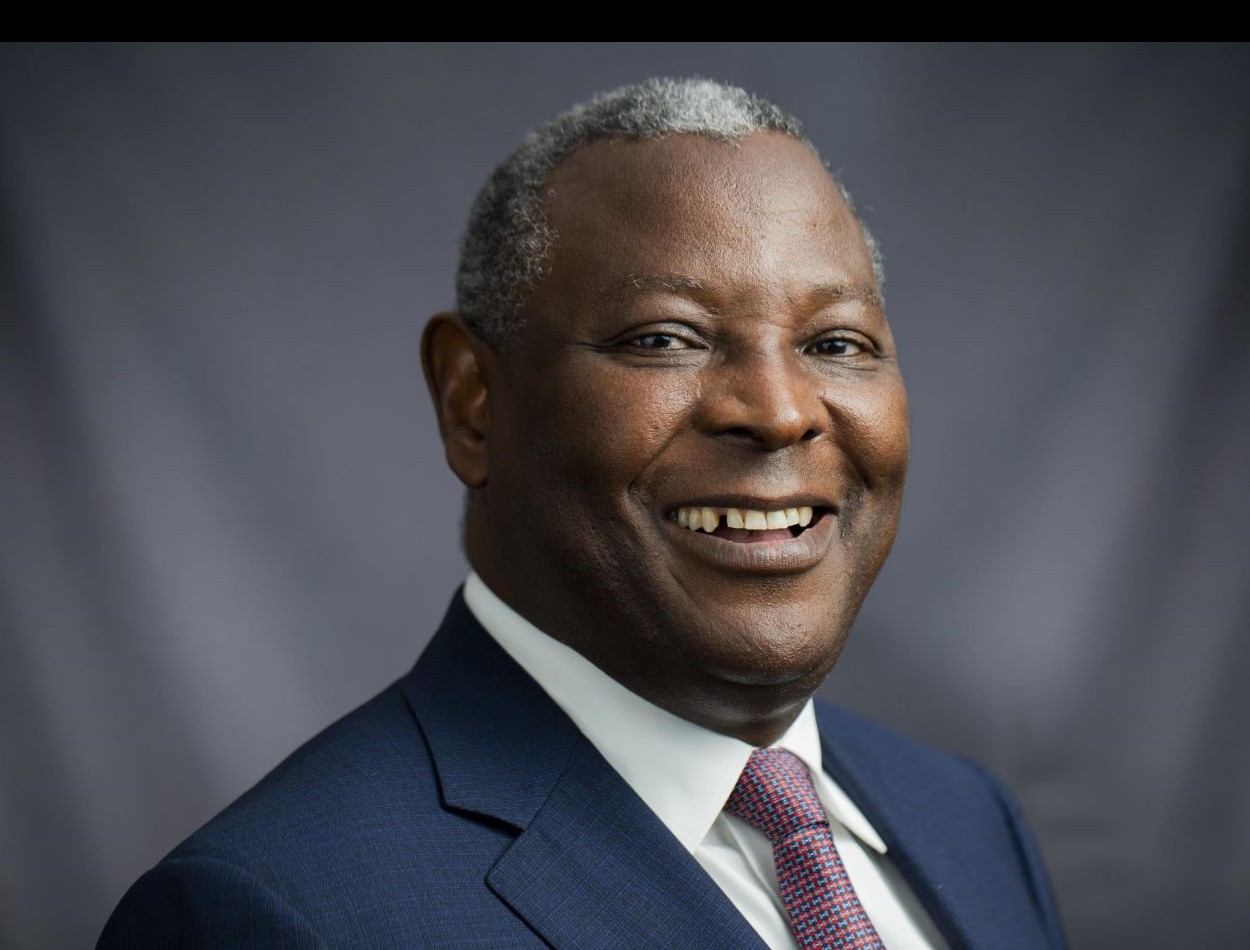Kenyan billionaire David Langat’s empire is under scrutiny again as auctioneers move to sell off his properties. Among the assets listed for auction are the Koisagat Tea Group of Companies, located in Nandi Hills. The properties include land measuring approximately 1,342 acres, tea processing plants, and machinery.
According to the auction notice, the estate features 2.47 million tea bushes spread across 958.75 acres, along with 100,942 eucalyptus trees and 2,223 cypress trees. The land is also home to managerial houses, labour camps, and woodlots, which are periodically harvested to fuel the tea processing operations.
Additionally, the estate includes two schools—Francis Kibet Memorial School aned Koisagat Primary School—a factory section, administration buildings, a fuel station, a main store, workshops, a social hall, guest houses, and a chairman’s residence.
Sources claim that the expansive tea estate is valued at approximately $14.73 million and is set to be sold in a forced auction scheduled for September 10, 2024, in Nairobi’s Westlands area.
This isn’t the first time Langat’s assets have faced auction. Last year, the same properties were put up for sale, reportedly due to a $15.50 million debt owed to a local bank. However, the auction was eventually cancelled with no reasons cited. The recurrence of this situation has led to speculation that Langat’s financial troubles may be deepening.
“All intending purchasers are requested to view the property and verify the details as these are not warranted by the auctioneers. A deposit of 10% for each property should be paid in cash or banker’s cheque at the fall of the hammer.”
“The balance will thereafter be payable within ninety (90) days for each property to the chargee’s advocates. A bidding deposit of Kshs 10 million ($77,520) for Each property by way of banker’s cheque(s) will be mandatory. Please note that failure to pay the balance by the confirmed purchaser will result in forfeiture of all deposits paid,” the notice read in part.
Who is David Langat?
David Langat, a 58-year-old reclusive billionaire, is known for his expansive business empire and connections to Kenya’s ruling class. He is a close ally of President William Ruto and is believed to have bankrolled the head of state’s campaigns.
Langat rarely courts publicity, preferring to maintain a low profile. Little is known about his early life although he disclosed in a previous interview that his father used to work on a farm owned by a white settler. This is where Langat was born although his family had to move out when he was barely one.
His challenging childhood moulded Langat which is perhaps why despite his substantial wealth, he prefers to see himself as a simple man who grew up herding cows, walking barefoot to a village school. Through sheer determination and entrepreneurial spirit, Langat built DL Group, a conglomerate with interests spanning Kenya, Tanzania and several other countries.
DL Group, founded in the 1980s, began as an exporter and importer of commodities such as electronics and furniture. The company quickly expanded, becoming one of the largest tea producers in the region. Among its holdings is the DL Koisagat Tea Estate, which is currently at the centre of Langat’s financial woes.
In 2013, DL Group introduced purple tea at the Koisagat Tea Estate, making it one of the first Kenyan companies to grow and process this unique tea variety. The plan was to supply the tea to Europe and China where it is quite popular.
DL supplies tea to major international buyers, including Tetley UK.
The firm expanded to Tanzania in 2018, acquiring a 99% stake in three companies from the British firm Rift Valley Corporation for an estimated $46.51 million. This acquisition made DL Group one of the leading tea producers in Tanzania. The company now has a production capacity of about 11,000 tonnes per year.
DL Farms
DL Farms, a subsidiary of DL Group, focuses on producing clean, wholesome food on 1,000 acres of cropland and 500 acres of livestock pasture. The farm employs modern farming methods to ensure high yields while prioritizing environmental sustainability.
Special Economic Zones
One of Langat’s most ambitious ventures is his Special Economic Zone(SEZ). In 2013, he established Africa Economic Zones Ltd (AEZ), which owns a 700-acre industrial complex in Eldoret.
The inspiration for this project came from Langat’s desire to empower local youth and contribute to Kenya’s industrialization. His vision was further shaped by observing industrial developments in other countries.
“Back in 2013, I was driving through the streets of Eldoret when I noticed the industrious efforts of young people in every corner of those streets. From the newspaper vendors and fruits vendors to the matatu drivers and shop attendants, they were all doing their best to create jobs and earn a decent living. As I watched them working with enthusiasm and diligence, I felt very strongly that I should support the youth empowerment efforts of the government by establishing an industrial park in Eldoret,” Langat said.
When former President Uhuru Kenyatta’s government came up with the Special Economic Zone Act, Langat seized the opportunity to transform his industrial park into a full-fledged SEZ.
He got in touch with his consultants to see whether it could fit the requirements of the Special Economic Zone Act.
“ I appointed some experts on these special economic zones, we got some consultants who already had some idea what special economic zones, especially the Dongo Kundu,” Langat stated.
Recognising the magnitude of the project, Langat partnered with a Chinese firm to actualise his vision.
“I identified and analysed who has done this in Africa. And I found this company which had done a similar project in Nigeria. I had a meeting with them, and we had quite a number of sessions together to understand the way they work. That is when we decided to develop an industrial park,” he said.
Although the consultations were costly, Langat pushed through driven by a will to help his people. Notably, the industrial park is located on the same farm owned by the white settler his father used to work for – a land designated for white people that is now owned and managed by a small boy who was a herder and who did not even have shoes.
Known as AEZ Pearl River, this industrial park caters for a multitude of industries from different sectors of the economy including agro-processing, chemical and construction.
Plans are already in place for phases two and three comprising of a science and technology park together with Olympia City, a diverse project encompassing hotels and various developments.
Real estate
David Langat’s empire has several investments in real estate, owning properties like the Nyali Super Centre in Mombasa and developing Olympia City, a proposed mega-project in DL Group’s Special Economic Zone. Olympia City is envisioned as a mixed-use development with hotels, schools, entertainment areas, a state-of-the-art hospital, and up to 4,000 residential units.
Additionally, Langat has initiated several high-profile real estate developments, including luxurious villas in Karen, Nairobi’s upscale suburb, and modern apartments along Thika Road, targeting middle-income earners.
The magnate also owns several hotels including the Sunrise Resort Hotel, Spa & Apartments, which is located in Nyali and has a scenic view of the Indian Ocean, the Pearl Hotel in Eldoret and Kitengela Hotel.
Energy projects
Langat’s DL Group is also a major player in the energy sector, particularly in renewable energy. The company is currently developing a 94 MW solar power project with an investment of $170 million. Once completed, this will be the largest solar plant in East and Central Africa, spanning hundreds of acres.
Additionally, DL Group is working on a geothermal plant in Western Kenya, further diversifying its energy portfolio.
Other ventures
David Langat’s empire has several other diverse interests. For instance, the multinational has partnered with Magal Security Systems of Israel to provide integrated security systems in East Africa.
It also operates in the furniture industry through DL Furniture, offering a range of products from office to home furnishings.
Additionally, the company has a presence in the insurance sector through Niconat Insurance, providing services for both commercial and personal clients.
Trouble with the Law
Apart from the most recent development where Langat properties have been put up for sale, the magnate has faced legal troubles.
In 2021, he and his family were taken to court by a travel agency for allegedly failing to pay a $152,000 bill incurred over a year.
According to court documents filed by African Touch Safaris Limited, Langat flew around the country and abroad between January 2018 and September 2019, spending $73,138 for both his business and his personal trips.
“The aforementioned amounts have fallen and payable and remains due and outstanding from the defendants and despite demand having been made, the defendants have refused, neglected and or otherwise failed to pay the aforementioned sum or any part thereof,” court documents read in part.
Family
Langat is married to Hellen Jerobon Langat and the pair have children together although it is not known how many. One of his kids was put in the spotlight in 2021 during her traditional wedding, “Koito” in 2021.
Langat handed over his daughter Natalie to her soon-to-be husband in a colourful ceremony attended by the who’s who in Kenya including President William Ruto who was then deputy resident and his wife Rachel Ruto.






